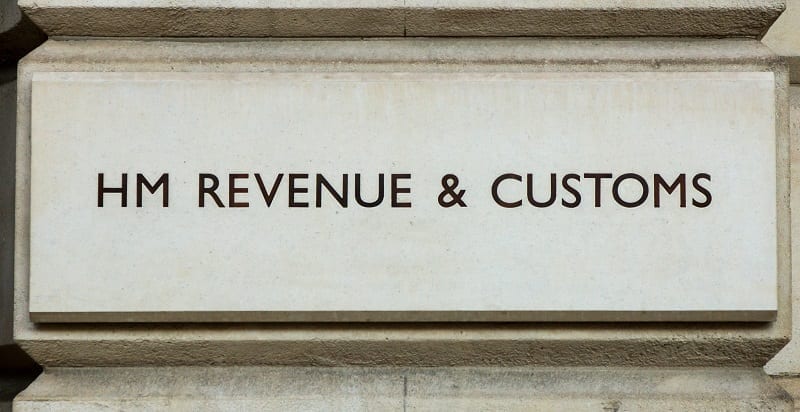Determining whether a worker engaged off-payroll (either directly on a self-employed basis, or through a limited company) should be treated as an employee for tax purposes,…
HMRC employer compliance check – a client story with a successful outcome
Background
Our client is a construction company with mixture of employees and sub-contractors.
The sub-contractors engaged were a mixture of labour only sub-contractors and sub-contractors engaged with plant and in some instance materials.
The company held annual events for staff, but these were not always held each year, or the company may hold a staff Christmas party one year, followed by a summer party the following year.
The company had been under a HMRC employer and CIS compliance check for 12 months, before we were asked to assist in bringing it to a timely and successful conclusion.
HMRC’s position prior to PKF Francis Clark support
Based on the client’s responses to the HMRC case officer during the course of the check, HMRC had reached the position where they were looking to raise a historic PAYE and national insurance assessment back to 2014-15, suggesting the company should have treated the contractor as an employee for employment status purposes.
In addition, HMRC had Identified that many of the company contractors had owned the plant and machinery used in undertaking work for the company, with the company failing to withhold CIS on the amounts charged for the plant and machinery. Again, HMRC were looking to raise a significant assessment to recover the under-deducted CIS.
Finally, HMRC were denying the availability of exemption for its staff events (Section 264, ITEPA 2003), on their view of the meaning of ‘annual’ being something that needs to be held every year.
Concerns on how the enquiry had been managed to date
To be able to understand why our support was able to help the company, it is important to understand that HMRC’s employer compliance teams are in a period of transition, which in our experience has negatively impacted the ability of case officers dealing with employer and CIS compliance checks. The primary reasons for this are:
- The centralisation of HMRC offices is leading to experienced compliance officers retiring early or taking roles outside of HMRC in order to avoid longer commutes or having to move home.
- Many former compliance officers are being asked to move into other areas of HMRC, particularly counter-avoidance, or more recently to support with HMRC’s administration of the job retention scheme and self-employed income support scheme.
- HMRC is increasingly being asked to undertake desk-based compliance checks, which can lead to the ‘full picture’ not being understood.
- The ability of new and inexperienced officers to get appropriate training and support from more experienced colleagues has been impacted by HMRC’s staff working from home during the coronavirus pandemic.
Having reviewed how the compliance check had been handled to date, we were concerned that HMRC did not appear to have given the client a formal employment status opinion of the contractor now deemed an employee, before raising an assessment. They appeared to have based the assessment entirely on the use of language and interpretation from the company director – who was not an employment tax expert and had no knowledge of the factors needed to determine employment status.
Similarly, HMRC’s CIS assessment failed to consider any relief available to the company as a result the contractor already settling their tax affairs via self-assessment, a relief designed to ensure HMRC does not collect tax twice on the same income.
HMRC’s argument on the staff functions is a particularly grey area, and is an argument we are increasingly seeing HMRC take. HMRC’s view that annual means something that must occur every year is taken from their internal guidance. However, this interpretation of annual is relatively new and only added to their guidance in October 2017. The addition appears to be an internal change in HMRC’s view, with no change in legislation or case law that would explain why the guidance has been updated. Indeed, the only case law relating to the tax definition of annual, concludes that annual should be looked at in the context of an individual tax year and not successive tax years.
HMRC’s view is particularly concerning considering the current pandemic; where even employers who hold regular staff events at the same time each year, will have been forced to cancel their planned functions for 2020. HMRC’s interpretation would suggest that as the 2020 functions had not taken place, the Section 264 exemption given to employers historically, would no longer be available leaving employers liable to a tax charge for the events taken place pre-2020.
HMRC’s view of an annual function, despite what is mentioned in their internal guidance, was something that did not seem correct to us. There does not appear to be any intention behind the exemption to penalise an employer for failing to hold an event every year, or where they hold the event as a one-off.
Our view followed the existing case law and considered the overriding intention and spirit of Section 264 was to provide an exemption for infrequent staff events. The legislation was designed to avoid the exemption being used for regular staff events i.e. pay day drinks at the end of each month rather than the events not being held frequently enough.
Conclusion
With the compliance check already having taken up a significant amount of the company’s time, they were keen for the check to be concluded and with our support the check was brought to conclusion with no payment needed to be made by the company to HMRC.
In concluding the enquiry, HMRC conceded that they had not followed their own procedures and undertaken an appropriate employment status review of the contractor to determine whether a liability existed.
We were able to help the company gather information from their sub-contractors on the amounts they had paid via self-assessment, which would have provided significant relief against any CIS assessment, leading HMRC to concede that it was no longer an area they needed to consider for assessment.
We highlighted the relevant case law to HMRC on the availability the exemption for annual events and pointed out that the staff function restrictions caused by the coronavirus pandemic demonstrates the flaw in HMRC’s view of annual functions. Consequently, and on a without prejudice basis, HMRC conceded on the unavailability of the relief.
Key takeaways
- HMRC case officers are increasingly less experienced.
- Involving an experienced adviser to assist with a compliance check, particularly from the outset, will save the employer time and costs.
- HMRC view on an issue can be challenged where it does not feel right, even when the view is detailed within HMRC’s own guidance – as this is only HMRC’s view and is not binding.
If you are currently under a compliance check, or if you find yourself in that position in the future please do get in touch as our Employer Solutions team can help you.

FEATURING: Steve Ashworth
Before joining the Bristol office of PKF Francis Clark in July 2019, Steve started his career at HMRC over 30 years ago and then spent… read more



